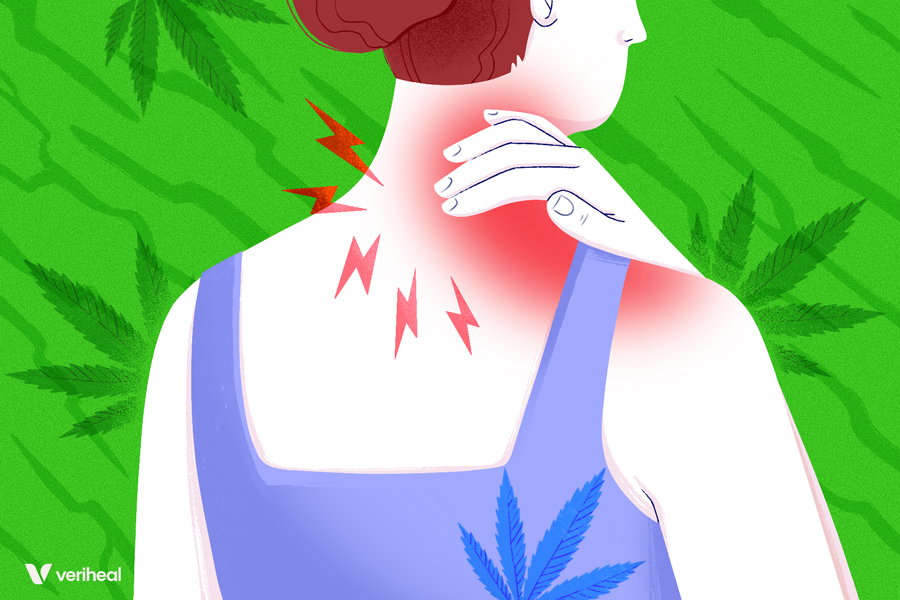Cancer can be a harrowing journey, not only due to the disease itself but also because of the relentless pain that often accompanies it. Conventional pain management strategies, such as opioids and other medications, can sometimes fall short in providing lasting relief or cause undesirable side effects.
But what if a safe and effective complementary plant-based treatment was widely available to alleviate cancer pain?
A new 2023 study published in BMJ Supportive & Palliative Care suggests that cannabis could be the answer millions of cancer patients have been looking for.
In this article, we’ll delve into the newest research findings and explore how medicinal cannabis could revolutionize cancer pain management and reduce reliance on opioids and other medications.
Alarming Statistics Regarding the Painful Reality of Cancer and Current Pain Management Strategies
Chronic cancer pain is a significant concern for patients and healthcare providers alike. According to a 2016 study, about 39.3% of patients experience pain after curative treatment, while 66.4% of patients with advanced or metastatic cancer suffer from pain.
Furthermore, a 2014 meta-analysis reported that the prevalence of pain was 59.2% in cancer patients undergoing anticancer treatment, 50.7% in those who had completed treatment, and as high as 66.7% in patients with a metastatic, advanced, or terminal disease.
These statistics highlight the urgent need for effective pain management strategies that can address the specific challenges faced by cancer patients, especially those with advanced stages of the disease.
Cancer Pain Relief With Cannabis: What the New Study Shows
Utilizing data from the Quebec Cannabis Registry in Canada, researchers sought to examine the safety and effectiveness of cannabis in addressing cancer pain. This research involved monitoring the treatment responses of 358 adult cancer patients over 3.5 years between May 2015 and October 2018. The study participants had an average age of 57, and 48% were male. The primary cancer types among the patients were breast, bowel, and genitourinary cancers.
Interestingly, 72.5% of the patients reported pain as their primary motivation for obtaining a medicinal cannabis prescription.
The study established that medicinal cannabis had an acceptable safety profile, with only 15 adverse reactions occurring among 11 patients, most of which could be classified as minor. Additionally, severe side effects, including cardiovascular events and pneumonia, were considered improbable consequences of medicinal cannabis usage. A mere five patients chose to discontinue the treatment due to side effects, further emphasizing the tolerability of medicinal cannabis.
Why You Should Get Your Medical Marijuana Card
Veriheal has satisfied millions of patients nationwide by giving them access to these benefits
- Larger purchase limits
- Peace of mind
- Enhanced legal protection
- Access to higher potency strains
- Save up to 25% on cannabis purchases
- Skip the line at the dispensary
Moreover, the study uncovered notable reductions in both the average and worst pain intensity, the severity of pain overall, and the impact of pain on daily activities at three, six, and nine-month time points. Products with an even balance of THC and CBD contribute to more effective pain relief than those with a dominance of THC or CBD.
Aside from that, the total amount of medications consumed by patients consistently dropped during each subsequent quarterly evaluation, and the use of opioids decreased throughout the first three assessments.
Study Limitations and the Future Prospects for Cancer Pain Treatment
The Quebec Cannabis Registry study’s outcomes showcased the considerable promise of medicinal cannabis as a viable option for managing cancer-related pain.
While the study had an observational design and faced certain limitations, such as the dropout of patients during follow-up and insufficient data on other prescribed medications, its findings imply that medicinal cannabis could serve as a secure and supplementary treatment choice.
Cancer patients who do not find sufficient pain relief through traditional painkillers, like opioids, may benefit from using medicinal cannabis as an alternative therapeutic approach.
The positive results from this study open the door for future research to further investigate the potential of medicinal cannabis in cancer pain management. Expanding the body of knowledge on the subject could lead to more targeted and effective cannabis-based treatments, transforming the landscape of cancer pain relief and providing patients with better quality of life.
The Bottom Line
In conclusion, the new study conducted by the Quebec Cannabis Registry study offers encouraging evidence supporting using marijuana as a complementary medicine for cancer pain management. By demonstrating significant reductions in pain intensity and interference, as well as a decrease in the total number of medications and opioids taken, the study has shed light on the potential of cannabis products to enhance the quality of life for cancer patients.
While further research is needed to build upon these findings, the study marks a significant step forward in identifying alternative and effective pain relief options. As the body of knowledge on cannabis continues to grow, we move closer to a future where cancer patients have access to a broader range of safe and effective pain management strategies, ensuring they receive the compassionate care they deserve.
Note: The content on this page is for informational purposes only and is not intended to be professional medical advice. Do not attempt to self-diagnose or prescribe treatment based on the information provided. Always consult a physician before making any decision on the treatment of a medical condition.
Author, Share & Comments
















